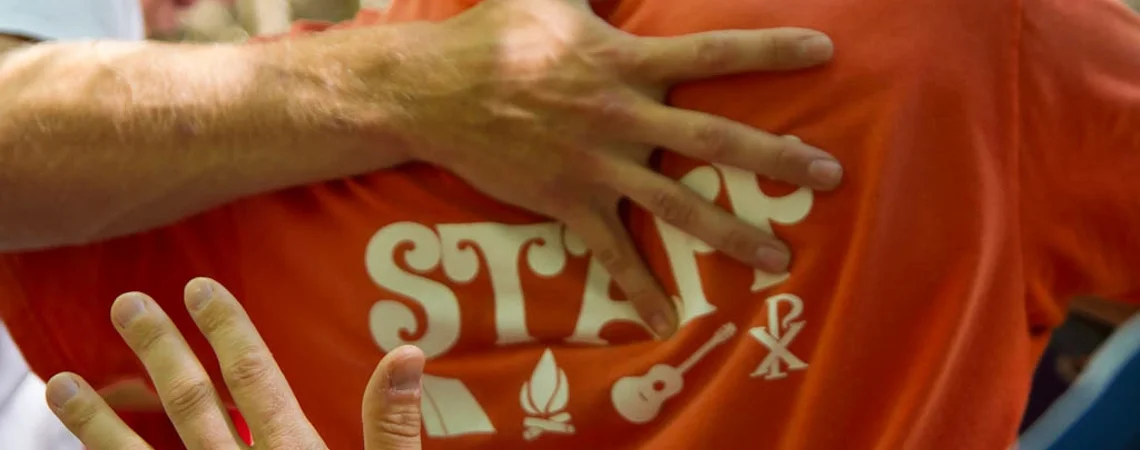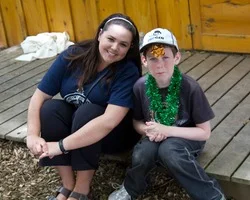Two Completely Different Bus Rides
Today on Twitter I was part of a very brief but interesting conversation about the bus ride to camp (Follow me: @jay_gilbert). As a staff member, I would occasionally volunteer to be one of the staff on the camp bus at the beginning or end of a session. The bus ride to camp and the bus ride from camp couldn’t be any more different.

On the first day of any particular camp session, the bus will wait in the parking lot for (potentially) eager campers to arrive. In our hideously bright staff t-shirts - it would be impossible to miss us, plus we had giant smiles on our faces - see photo, the group of 3-4 staff would enthusiastically greet everybody who arrived at the meeting spot to head to camp.
Some campers were returning campers, and they knew the drill. Drop the bags under the bus, say goodbye to their parents, get on the bus, and find a seat for the next couple hours.
Some of the campers were new. Not only were they new, they were also afraid. Some of these little boys and girls were leaving home for the first time and weren’t sure if they were ready to be away from home for two weeks.
We did our best to get the campers excited to be en route to South Waseosa Lake Road. We would work the aisle - go up and down the bus talking to campers, making sure everybody was comfortable, answer questions from the returning campers such as “Did Seeley come back to camp this year? Who’s my counsellor? What cabin am I in? Who’s the craft lady?”
Despite all the positive energy of the staff, the bus ride to camp is very quiet. The energy that so magically comes out at camp hasn’t hit yet, and the first time campers often feel overwhelmed, nervous, and scared.
Fast forward two weeks.
It’s tough to get the campers on the bus to go home. Nobody wants to leave. A dozen pair of best friends reluctantly board the bus. At least they have seat mates for the ride home! The volume of conversation on the bus ride home is noticeably louder and the air is filled with laughter, chatter, and some sniffles. Not long after the bus rolls away from camp everybody starts singing. This bus ride is completely different from the one two weeks prior.
Having had these two opposite bus experiences did teach me that it only takes two weeks to change a kid’s life. That first-time-away-from-home ten year old who arrived at camp shy and quiet, jumps off the bus with more stories to tell his parents than there are minutes in the car for the drive home.
Taking the bus to camp is absolutely a great idea. It’s the first chance you have to make a new friend






